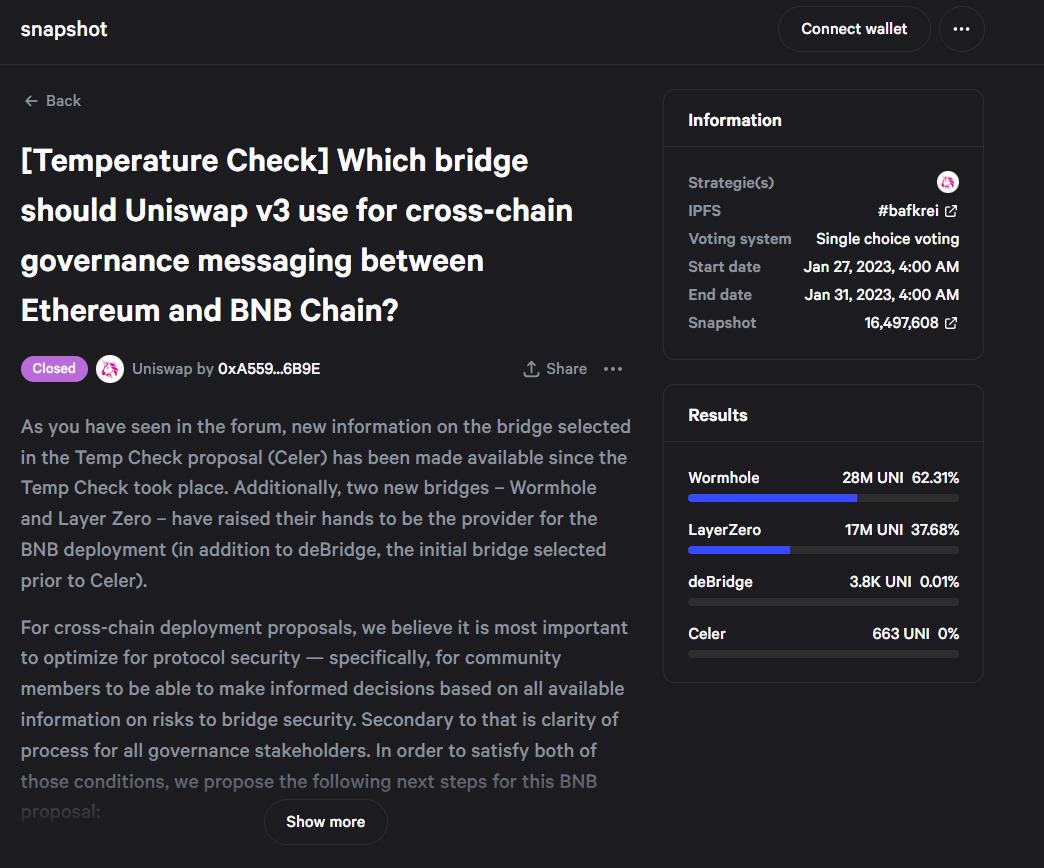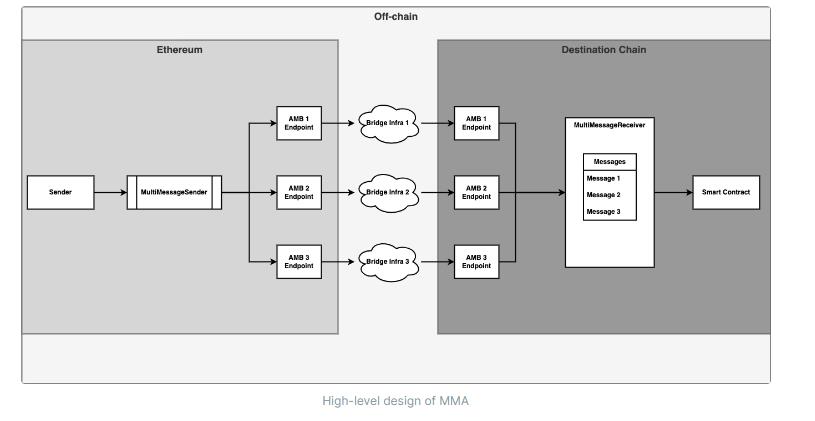
New Aggregator Aims to Prevent Governance Attacks Originating from Cross-Chain Bridges
LiFi, the multichain bridging protocol, has announced the launch of a multi-bridge aggregator for decentralized autonomous organization (DAO) governance. By implementing this aggregator, decentralized exchanges, lending apps, and other Web3 protocols can prevent governance attacks that stem from cross-chain bridges, according to the aggregator's documentation.
Addressing the Bridge Security Debate
The announcement comes after a heated debate on bridge security on the Uniswap forums earlier this year. It was concluded that no single bridge had all the necessary security features for secure governance.

A Look at Uniswap and the Issue of Cross-Chain Governance
Uniswap, a crypto exchange, is governed by a decentralized autonomous organization called UniswapDAO. In January, the DAO began discussing the deployment of a second copy of Uniswap to BNB Chain. This raised concerns about how Uniswap would be governed on multiple chains since all votes were previously taken on the Ethereum network. The DAO then voted to deploy a second copy of Uniswap to BNB Chain and use the Celer bridging protocol to send messages from BNB to Ethereum.
Controversy Over Bridge Choice
However, controversy quickly arose regarding the choice of the Celer bridge. Some participants in the DAO were concerned about its level of security in preventing cross-chain governance attacks. Alternatives such as Wormhole, LayerZero, or DeBridge were suggested. Despite the debate, the DAO ultimately voted in favor of Wormhole as the bridge for governance.

The Need for Multiple Bridges
Many participants in the debate concluded that Uniswap should utilize multiple bridges to enhance security. This way, if one bridge were to be hacked, the other bridges would reject any malicious messages from it, effectively thwarting the attack. However, at the time, there was no multi-bridge solution available.
Introducing the LiFi Bridge Aggregator
LiFi's new bridge aggregator, as announced on August 18th, offers a "future-proof solution for different cross-chain messaging needs." By utilizing this aggregator, protocols can avoid relying on a single bridge for governance messages. According to the aggregator's documents, protocols can require votes to be confirmed on two out of three bridges to be considered valid. The aggregator can also be configured to use different ratios based on the DAO's preferences.
Competition in the Space
Gnosis, another team, released a similar multi-bridge aggregator protocol called "Hashi" in March. However, in June, a committee within the UniswapDAO claimed that Hashi was not yet production-ready and lacked audits and a bug bounty program, rendering it unsuitable for DAO governance.
Upcoming Audits for LiFi Aggregator
The LiFi bridge aggregator has also not yet been audited. However, Arjun Chand, LiFi's research lead, stated in the announcement that they plan to expand testing and submit the aggregator for an audit by Trail of Bits.
Did you miss our previous article...
https://trendinginthenews.com/crypto-currency/crypto-grants-pave-the-way-for-innovation-as-venture-capital-takes-a-hit






